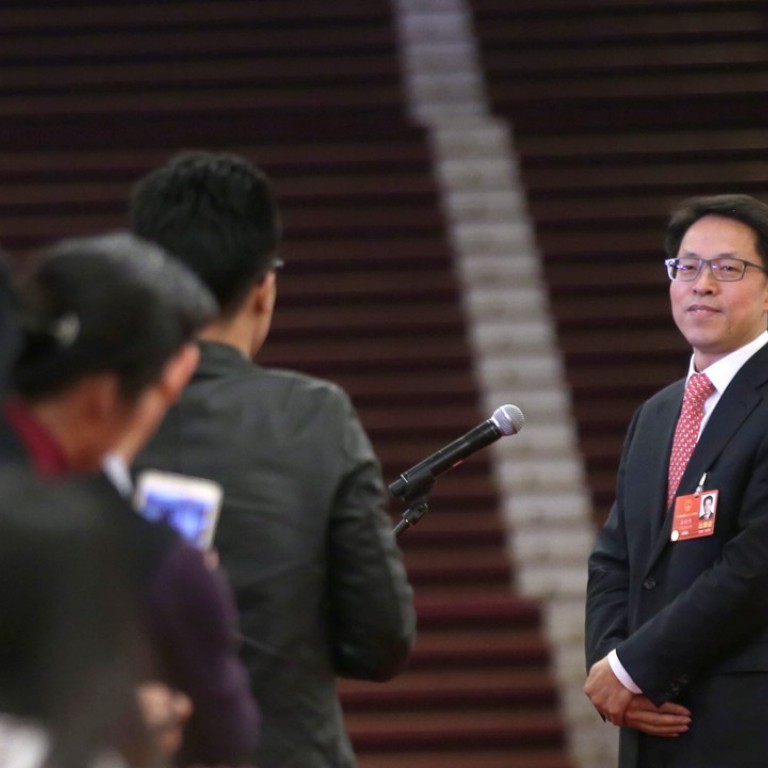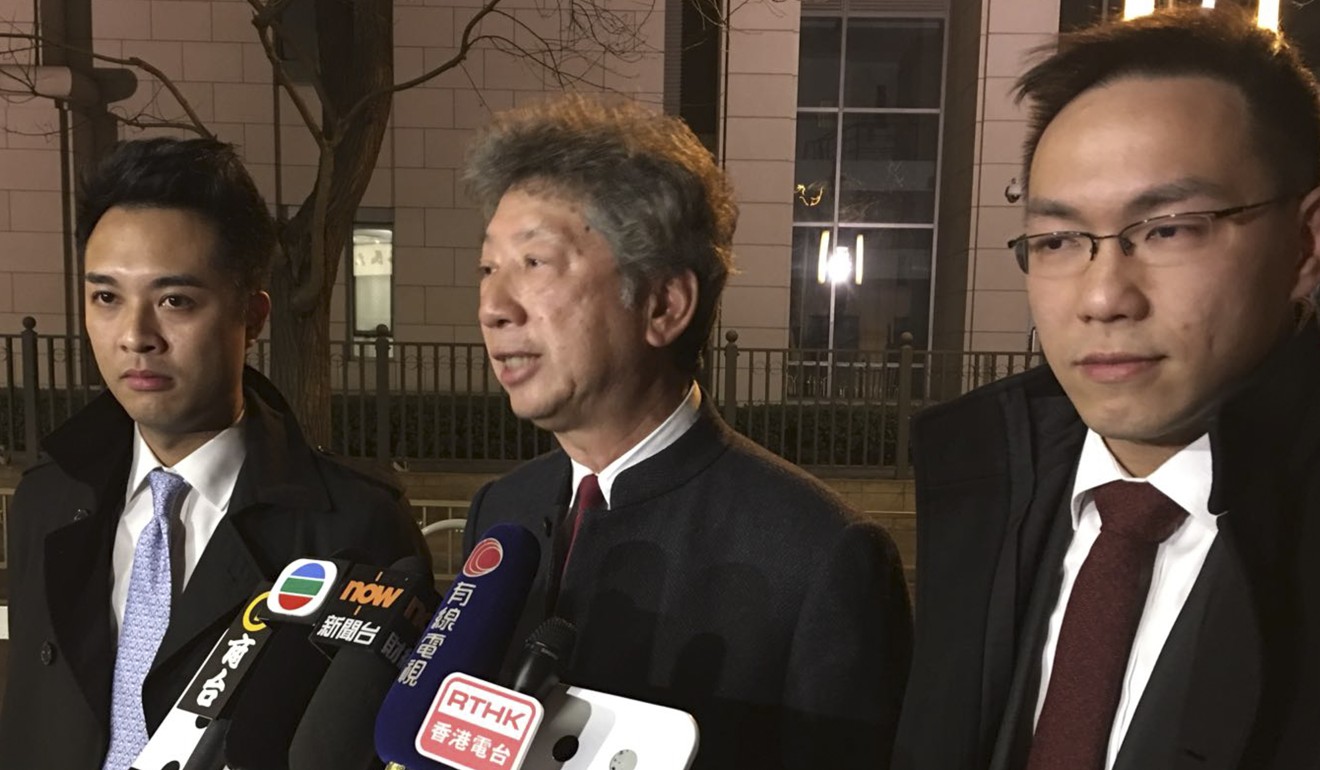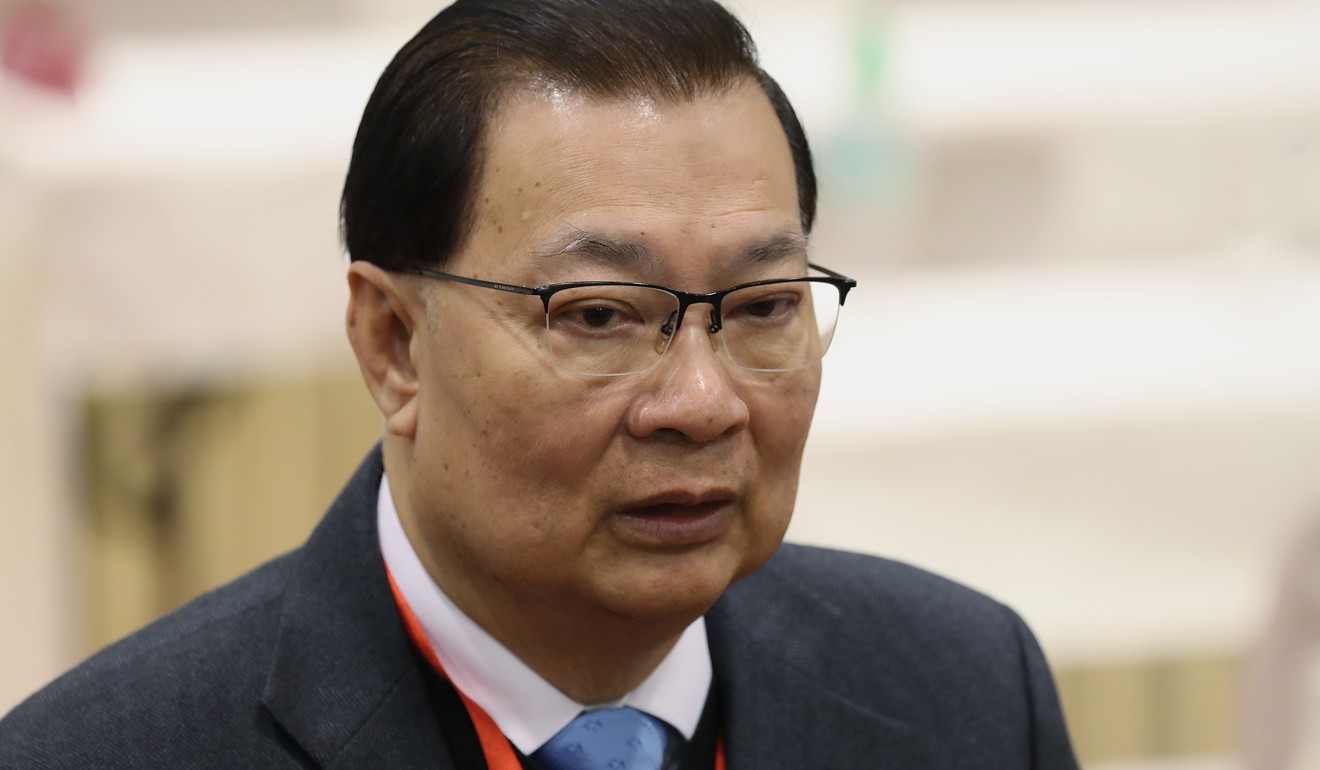
China’s top official in Hong Kong ‘understands’ fears over city poll ban for those advocating end of ‘one-party dictatorship’
Local delegation in Beijing presses for response on matter after controversy sparked by newly elected member of the country’s top legislative body
The top mainland official in charge of Hong Kong affairs “really understands” worries that those who advocate the end of “one-party dictatorship” would be disqualified from running for local office, a senior adviser from the city said on Friday.
Executive Councillor Ronny Tong Ka-wah said he suggested to Zhang Xiaoming, director of the State Council’s Hong Kong and Macau Affairs Office, at a private meeting in Beijing on Friday that allegiance to China’s constitution should not be a prerequisite to run in Hong Kong elections.
Mainland official agrees with Hong Kong poll ban for anyone decrying ‘one-party dictatorship’

Tong said Beijing’s top man overseeing local matters did not see “any differences that cannot be reconciled” on the issue.
He did not reveal further details of the senior official’s response, but said Zhang “really understands” his view.
Asked if he would conclude from his meeting with Zhang that local politicians against “one-party rule”, such as members from the Hong Kong Alliance in Support of Patriotic Democratic Movements in China, could stand for elections in future, Tong said: “I don’t see why they can’t.”
Intention key to determining whether national anthem insult in Hong Kong deserves jail time
Tong is leading a 32-member group from think tank Path of Democracy. On Thursday night, the delegation dined with state officials, including Li Fei, the former chairman of the Basic Law Committee and now chief of the Law and Constitution Committee.

Sources said mainland officials also stressed that Beijing respected the one country, two systems policy, under which Hong Kong is guaranteed a high degree of autonomy. They said they believed that the model, which was set to last for half a century since 1997 when the city was returned to Chinese rule, would continue even after 2047.
If you want to join the establishment, the Legislative Council is part of the establishment
Both issues have been political hot potatoes in Hong Kong, sparking large protests.
Newly appointed Basic Law Committee chairman Shen Chunyao did not attend the dinner on Thursday because of his busy schedule.
Meanwhile, in response to the controversy sparked by his remarks, Tam said on Friday morning that he only wanted to “remind” election hopefuls that calling an end to one-party rule could be out of line with the revised Chinese constitution.
Speaking on a radio programme Tam said it was ultimately up to the returning officers to determine a candidate’s eligibility.
“There is freedom of speech in Hong Kong – you can say what you want,” Tam said, but he added that there were extra requirements for those looking to become a lawmaker.
“You have to take an oath and swear allegiance to the Hong Kong Special Administrative Region of the People’s Republic of China, and abide by the People’s Republic of China’s Basic Law.”
Such requirements also extended to election candidates and lawmakers-elect, he said.
On fellow NPC deputy Raymond Tam Chi-yuen’s call to add text upholding the Chinese constitution to the oaths of Hong Kong officials, including for the chief executive, Tam Yiu-chung said it was reasonable.
Politically appointed officials in Hong Kong were appointed by Beijing, he said.
Additional reporting by Phila Siu in Beijing and Sum Lok-kei

